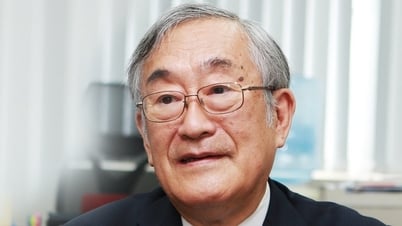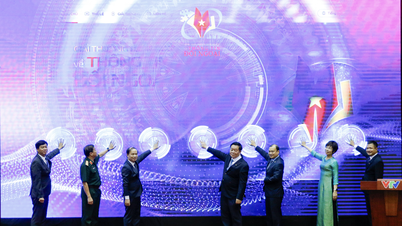Karl Marx - a genius scientist, a great thinker whose intelligence deserves to be considered the intelligence of a giant of the era.
Marx's thoughts and career have overcome all the challenges of time, and have been mentioned by many generations with all the admiration, respect and honor. Marx's name is associated with a revolutionary and scientific doctrine that has changed the real life of mankind, starting from the 20th century until now. Discoveries Marx's science is truly epoch-making, becoming a sharp weapon for the working class in the struggle against oppression and exploitation; it is the platform and compass of Communist and workers' parties around the world .

Genius scientist, great thinker
Marx was born on May 5, 1818, in the city of Trier (Germany). In 1835, at the age of 17, he soon expressed his humanistic thoughts in his high school graduation thesis "Thoughts of a young man when choosing a career" when he wrote: Experience shows that those who bring happiness to the most people are the happiest. In 1835, Marx entered university, during which time he studied philosophy. After graduating from university, Marx embarked on his independent research and on April 15, 1841, at the age of 23, Marx received his doctorate with an excellent thesis: "The difference between Democritus's natural philosophy and Epicurus' natural philosophy". This was a milestone showing the blossoming of a scholarly genius. Since his doctorate, Marx was already a true genius and erudite thinker with a prominent presence in the academic activities of contemporary intellectuals, to the point that he was considered one of the brightest stars in the sky of human intelligence.
With his profound intelligence, research and practical knowledge, Marx wrote many works with extremely new and progressive ideas such as " Economic and Philosophical Manuscripts of 1844", which was the embryo of extremely important ideas that Marx later developed scientifically in "Capital" and "The Holy Family", strongly criticizing subjective idealism, while at the same time pointing out the decisive role of the masses in history.
After February 1845, Marx set himself the task of proposing a new revolutionary doctrine. He wrote many works criticizing idealism, opposing petty bourgeois philosophy; presenting the foundations of historical materialism and proletarian political economics. In particular, in 1848, Marx and Friedrich Engels wrote the "Communist Manifesto" - a document of the nature of the program of Marxism and the proletarian party. In 1867, Marx's "Capital" (Volume I) was published, clearly outlining the law of surplus value. In his later works, Marx proposed the organizational form of the proletarian dictatorship, pointed out the transitional period from capitalism to communism and the establishment of proletarian parties in countries...
With great thoughts, Marx established his scientific and revolutionary doctrine, which demonstrated his great contribution to history and society.
First, Marx's dialectical materialist conception of history. This is one of his two epochal inventions. With this invention, for the first time, history was perceived and explained as it really is, objectively and truthfully. Marx clarified the dialectics of objectivity and subjectivity, building a classic definition of human nature, which is the sum of social relations. He affirmed that history is the history of the activities of real people, it is not mystical, spontaneous, but completely perceptible. History moves in a regular manner, based on realistic premises, it is a natural-historical process.
Second, the theory of socio-economic formation is the backbone of Marx's theory of social development according to historical-natural logic. Based on the discovery of the law of the dialectical relationship between productive forces and production relations, Marx also built the theory that the infrastructure determines the superstructure, social existence determines social consciousness, and history, despite many ups and downs, still develops according to its own laws.
Third, these are the genius predictions that are forever of great value, which Marx and Engels put forth: The defeat of the bourgeoisie and the victory of the proletariat are both equally inevitable in history - this is Marx's strategic thought. At the same time, it points out the path to abolish capitalism, build a future communist society, and ensure the free development of human beings.
Fourth, the discovery of the law of surplus value, this is the second invention that marked the era of Marx. With this discovery, Marx "lifted the veil of secrecy" of economic and social relations under capitalism, exposing the fact that the bourgeoisie brutally exploited the workers' wage labor. It was also economic exploitation combined with political oppression and spiritual enslavement, pushing the proletariat and the poor working masses into a state of alienation, from alienation of labor to alienation of human nature.
Fifth, discovering the historical mission of the working class, of the vanguard, the Communist Party, in the work of abolishing capitalism and building communism; providing a scientific and revolutionary explanation of that historical mission - a value of Marx's time. This is the core of Marxism's political theory.
Great leader of the working class and working people of the world
Not only was Marx a genius scientist and a great thinker, he was also a steadfast revolutionary soldier who bravely fought for a progressive society. In Marx, the scientist and the revolutionary soldier were one, and scientific research was always closely linked to revolutionary struggle. He made very important contributions to the international communist and workers' movement.
As early as 1845, Marx issued a manifesto of the new philosophy: The new philosophy does not need to float in the sky but needs to stand firmly on earthly feet on the land of reality, the material strength of philosophy is the working class and the working class finds in philosophy its spiritual strength.
With the correct methodology, in the "Communist Manifesto", Marx and Engels scientifically and convincingly explained that the demise of capitalism and the success of socialism are "equally inevitable", which is the law of development of human society. At the same time, they pointed out that in modern society, only the working class is capable of overthrowing capitalism, building communism and affirming the historical mission of the working class in that noble revolutionary cause. Marx emphasized that in the struggle for self-liberation, the working class must establish its own political party to lead the revolution. Marx also pointed out the goals, methods and forces of the revolution, and Marx and Engels themselves raised the very famous slogan: "Workers of all countries, unite".
Not stopping there, Marx first outlined and proposed the most reasonable form of the proletarian dictatorship - the government of the working class - a political organization like the Paris Commune. At the same time, he pointed out to the working class the path to building a new society in the transition period from capitalism to communism and the two stages of communism: the low stage (socialism), the high stage (communism).
Not only was he a scholarly genius and a great thinker, Marx was also a very typical revolutionary activist, with many important contributions to the international communist and workers' movement, first of all the Communist League; Marx was also the organizer and leader of the First International. These things prove that Marx was truly a great leader of the working class and working people around the world.
More than two centuries have passed since the appearance of the great man Marx, his epoch-making thoughts and his career still retain their value, living forever, despite the distortions and denials of hostile forces. What Marx left for humanity has been a prominent demonstration of the genius scientist, thinker, and great leader of the working class and working people around the world. The Marx-Lenin doctrine, which contains Marx's revolutionary and scientific thoughts, has been, is, and will always be the ideological foundation and compass for the revolutionary leadership of the Communist Party of Vietnam on the journey to the goal of "A rich people, a strong country, democracy, fairness, and civilization".
Colonel, Associate Professor, Doctor, Meritorious Scholar NGUYEN XUAN TU
Source



































































































Comment (0)